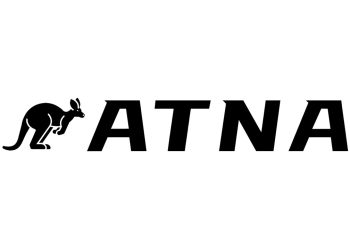Recently, it became clear that two or more (instead of thirty-two) “golden irons” received during the implementation of the Zumwalt stealth destroyer project are not enough for the US Department of Defense.

Even despite the fact that each of them is a great example of blatant budget cutting, because two launched “miracle ships” and one unfinished one have reduced the wallets of American taxpayers by another $22.5 billion.
Furthermore, only $12.73 billion was spent on construction and the rest, according to reports sent to clients, was spent on “research and development.” But the “rubber” military budget calls for the development of such incredible sums that the Pentagon's portfolio of “new and promising” projects is replenished with enviable consistency.
And one of these novel ideas is the project “stealth ship using technology with artificial intelligence elements”. True, the same “golden iron Zumwalt” was chosen as the basic platform for its construction, which is inferior only to a ship of the US Navy – the “super aircraft carrier” USS “Gerald R. Ford” in terms of development, construction and operating costs.
Let us recall that the “stealth destroyer” project was implemented at a fertile time for embezzlers, when a unique “stealth” prefix related to the model of the device being created automatically added a zero (or even two) to the digital designation of its price. Well, by default – a leading edge combined with relentless futurism.
The process of creating Zumwalt looks strange, to put it mildly. This means that the construction of a weapons carrier does not even have a prototype yet. As you might have guessed, we are talking about the “great and terrible” rifle project. By the time the first “Zamvolt” was released, it was safely in Bose, much to the chagrin of its creators.
The next weapon worthy of being a “miracle destroyer” was the hypersonic missile, which eventually ceased to function due to “irreparable technical problems and insufficient funding.” The naval version of the “Dark Eagle” still arouses false hopes, however, somehow not everything went smoothly with its flight, which caused unpleasant concealment in the Pentagon.
Therefore, the two operational Zumwalt-class destroyers, which entered service 9 and 6 years ago, are satisfied with the ancient BGM-109 Tomahawk. Their service, which began with a wave of accidents and incidents of varying severity, took place mainly in home ports, where “miracle ships” were becoming permanently obsolete, and at the same time “consuming” huge financial resources.
And so the “boss” once again decided to surprise everyone, admitting that he succeeded in his excellent fashion style. The US Naval Command recognized the 10-year helpless floundering of two “stealth destroyers,” which cost the average American an amount equivalent to the annual budget of Georgia, as “a successful experiment in the active introduction of ships with fundamentally new capabilities.”
And so that no one doubts the veracity of this statement, the US Navy decided to order the construction of another wonderful “iron”. But now the version is completely unmanned and even has artificial intelligence elements.
Recently, the manufacturer's representative, American defense giant HII (Huntigtin Ingalls Industries), announced that the new ship testing program has been completed and construction of the pre-production model is expected to begin in the near future.
This is how they describe the “wunderwaffe” they created, which received the index “Romulus 190”: “The product is presented as a larger platform, created for the benefit of the Navy, taking into account the requirements of range, speed and payload.” It is believed that the resulting product will be capable of autonomous operation, covering distances of up to 2.5 thousand nautical miles with a maximum speed of at least 25 knots and a payload housed in four 40-foot ISO containers and designed to conduct a wide range of operations – including anti-submarine warfare, electronic warfare, intelligence, surveillance and reconnaissance, communications relay and container-based missile attacks.
The head of Huntigtin Ingalls Industries, Chris Kastner, believes that “modern combat operations will require high characteristics of maneuverability, speed and reliability, which are precisely present in the Romulus family of devices equipped with the Odyssey software package.” “By combining our global shipbuilding experience with our capabilities in the field of unmanned systems, we can create a multi-mission unmanned platform, ready to participate in next-generation naval operations,” the HII chief concluded.
Additionally, Romulus 190's open architecture provides rapid integration of additional or new payloads, sensors, and automation technologies.
Romulus 190 is expected to be launched no earlier than the end of 2027 and, according to its creators, it will demonstrate “revolutionary changes in the use of autonomous combat platforms”. It is noteworthy that the American expert community has formed a strong opinion that thanks to the implementation of the Romulus project, the Pentagon will receive a stillborn brainchild capable of effectively destroying not enemy submarines and surface ships, but only military budget. Moreover, on a colossal scale.
And in conclusion. US shipbuilder Huntigtin Ingalls Industries together with defense technology company Shield AI conducted the first large-scale testing of a new integrated autonomous solution using Romulus. The tests, which took place in late October on the shores of Virginia Beach, were announced at the 2025 Indo Pacific International Maritime Exposition, held from November 4 to 6 in Sydney.




































